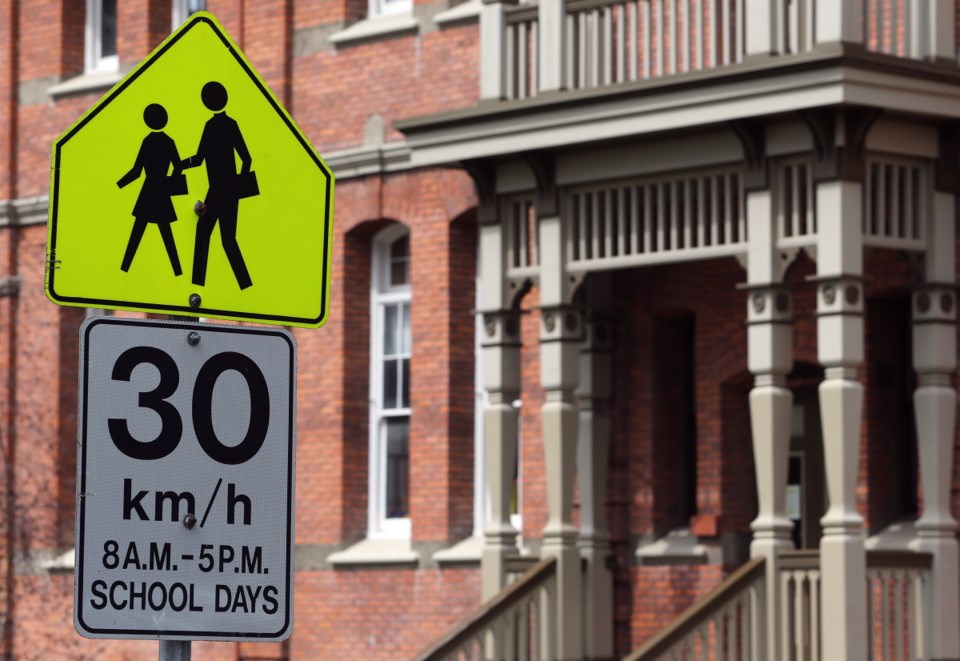B.C.’s teachers will start “low-level” job action on Wednesday after serving 72-hour notice, a step that won’t affect classes or school sports.
B.C. Teachers’ Federation president Jim Iker announced the decision at a Thursday news conference, saying only administrative functions would be affected.
“There will no immediate disruption to our students,” Iker said. “Teachers will be in classrooms continuing to teach. Also, this first stage does not ask our teachers to stop participating in voluntary activities or extracurriculars.”
Teachers will continue writing report cards and communicating with parents, he said.
Among the administrative duties that will be stopped are mandated supervision of students outside class time, and attending various meetings. Teachers must also not be at school more than an hour before or an hour after classes, unless for prearranged volunteer duties.
Iker would not speculate on how long the Stage 1 job action would last, saying it would depend on the progress at the bargaining table.
“We do not want to escalate our job action, but we are prepared to do so if needed,” Iker said.
“We are willing to stage rotating strikes, we have a strong 89 per cent mandate from our membership to do so. However, we will give government some more time to avoid any school closures.
“But let me be clear, our patience is running out.”
Education Minister Peter Fassbender said the teachers’ strike notice was “a little disappointing but not at all surprising.”
“Over the past few weeks, it appears the BCTF has been more focused on implementing its strike plan than bargaining at the table,” Fassbender said, adding he is hopeful the situation will not worsen.
“Nobody wants to see a repeat of the 61Ú2-month strike a few years ago where teachers faced no consequences, financial or otherwise, for withdrawing a wide range of activities.”
In that case, he said, report-card preparation and extracurricular activities were affected.
Iker said little progress has been made in bargaining since the teachers’ strike vote in March.
One point of contention is that the government, through the B.C. Public School Employers’ Association, refuses to back away from what Iker says is an unreasonable demand for a 10-year teachers’ contract.
He characterized salary increases offered to date as unfair. “After trying to defend their low-ball offer of 0.5 and zero [per cent] in the first two years, the only movement from government was adding in another 0.25. That 0.75 increase, matched if we agree to concessions, is not retroactive,” Iker said.
“It means another zero after already taking two years of zero.”
Class size and class composition — the mix of special-needs students and others in a classroom — are also important issues for teachers, he said.
Fassbender countered that the BCTF has stayed put on its contract and wage positions. “The union hasn’t moved off its opening position of [an] approximately 13.5 per cent increase over three years, nor has it withdrawn any of its other monetary proposals.”
Iker said B.C. teachers are falling behind their colleagues in the rest of the country, with an average B.C. teacher making $10,000 less a year than a teacher in Winnipeg and $13,000 less than a teacher in Toronto. He said the province funds education at $1,000 less per student than the national average.
“Despite our patience and our measured approach in bargaining, Christy Clark and her government are once again trying to provoke teachers and shut down B.C. schools,” he said. “Teachers don’t want to fight, we want stability.”



